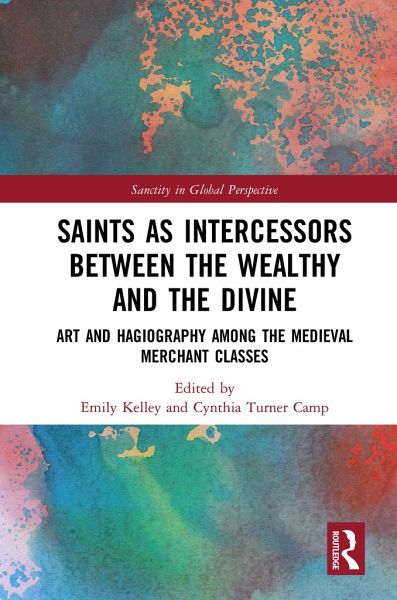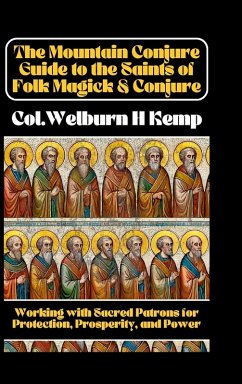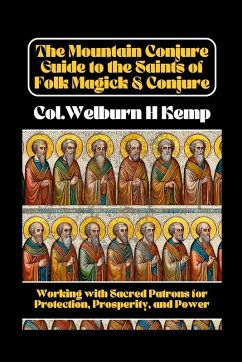
Saints as Intercessors between the Wealthy and the Divine
Art and Hagiography among the Medieval Merchant Classes
Herausgeber: Kelley, Emily; Turner Camp, Cynthia
Versandkostenfrei!
Versandfertig in 1-2 Wochen
55,99 €
inkl. MwSt.
Weitere Ausgaben:

PAYBACK Punkte
28 °P sammeln!
Offering snapshots of mercantile devotion to saints in different regions, this volume is the first to ask explicitly how merchants invoked saints, and why. Despite medieval and modern stereotypes of merchants as godless and avaricious, medieval traders were highly devout - and rightly so. Overseas trade was dangerous, and merchants' commercial activities were seen as jeopardizing their souls. Merchants turned to saints for protection and succor, identifying those most likely to preserve their goods, families, reputations, and souls. The essays in this collection, written from diverse angles, r...
Offering snapshots of mercantile devotion to saints in different regions, this volume is the first to ask explicitly how merchants invoked saints, and why. Despite medieval and modern stereotypes of merchants as godless and avaricious, medieval traders were highly devout - and rightly so. Overseas trade was dangerous, and merchants' commercial activities were seen as jeopardizing their souls. Merchants turned to saints for protection and succor, identifying those most likely to preserve their goods, families, reputations, and souls. The essays in this collection, written from diverse angles, range across later medieval western Europe, from Spain to Italy to England and the Hanseatic League. They offer a multi-disciplinary examination of the ways that medieval merchants, from petty traders to influential overseas wholesalers, deployed the cults of saints. Three primary themes are addressed: danger, community, and the unity of spiritual and cultural capital. Each of these themes allows the international panel of contributors to demonstrate the significant role of saints in mercantile life. This book is unique in its exploration of saints and commerce, shedding light on the everyday role religion played in medieval life. As such, it will be of keen interest to scholars of religious history, medieval history, art history, and literature.














